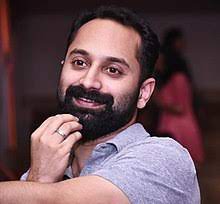A Quote by Alfred-Maurice de Zayas
The war industries in many countries and the enormous trade in weapons of all kinds generate corruption and fuel conflict throughout the world. The existence of an immensely powerful military-industrial complex constitutes a danger to democracy, both internationally and domestically, because it follows its own logic and operates independently of popular participation.
Quote Topics
Related Quotes
I am big supporter of the idea of a global anti-corruption movement - but one that begins by recognizing that the architecture of corruption is different in different countries. The corruption we suffer is not the same as the corruption that debilitates Africa. But it is both corruption, and both need to be eliminated if the faith in democracy is not going to be destroyed.
As a military man who has given half a century of active service I say in all sincerity that the nuclear arms race has no military purpose. Wars cannot be fought with nuclear weapons. Their existence only adds to our perils because of the illusions they have generated. There are powerful voices around the world who still give credence to the old Roman precept - if you desire peace, prepare for war. This is absolute nuclear nonsense.
Internationally, I propose the radical step of not trying to solve complex political problems with 1,000lb bombs; domestically, I propose they start addressing inequality by paying reparations for slavery. I'm well aware that in a society where war and discrimination are now almost entirely normalised, both options sound like madness.
The dichotomies, the brokenness of the culture around things like the Vietnam war, and then a lot of it has to do with war and where we put our energy and money and attention. And the military industrial complex, which dominates our whole economy. Even with the vision of democracy in other places we know the dark side.
The life of the community, both domestically and internationally, clearly demonstrates that respect for rights, and the guarantees that follow from them, are measures of the common good that serve to evaluate the relationship between justice and injustice, development and poverty, security and conflict.
ll industries have been disrupted and disruption tends to generate gatherings for people to share information. I don't think media are unusual here. Add to that the discovery, or perhaps expansion of the awareness, that events can generate revenue. So now we have companies whose business model is heavily based on events, whether it is Re/code or South by Southwest or many others. Those kinds of gatherings were once more institutionally oriented inside trade associations. Now they have been expanded out.
The gratitude of every home in our Island, in our Empire, and indeed throughout the world, except in the abodes of the guilty, goes out to the British airmen who, undaunted by odds, unwearied in their constant challenge and mortal danger, are turning the tide of the World War by their prowess and by their devotion. Never in the field of human conflict was so much owed by so many to so few.
For 60 years, since World War II, we have been trying to create a rules-based system, a global economic system. We understand that what makes our economy function is what we call the rule of law, and what is true domestically is also true internationally. It is important to have rules by which we govern our relations with other countries.




































